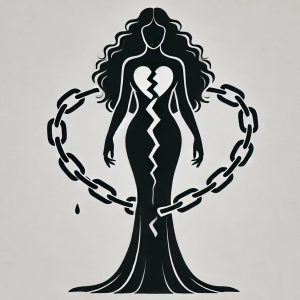
A trauma bond is a strong emotional attachment that develops out of a cycle of abuse, reward, and intermittent validation. It’s often seen in abusive relationships, cults, and manipulative institutions. The bond forms not despite the harm, but because the harm is tangled up with moments of care, dependency, or survival.
In many anti-trafficking spaces today, survivors face a coercive script. They are often nudged—whether by advocates, funders, or media producers—to shape their stories around the most horrific, cinematic tropes: organized crime, foreign traffickers, violent pimps, and miraculous rescues. The system rewards extremity and punishes nuance. A survivor who says “I was trafficked by a boyfriend, but I also stayed because I loved him” or “I’ve also done sex work by choice” might be told their story is too complicated to use. But one who adapts their truth into a clean arc of innocence, exploitation, rescue, and redemption may find themselves invited to speak on panels, featured in documentaries, and funded as the “authentic voice.” The trauma becomes commodified, and the story becomes the legend.
Comments (0)
To leave or reply to comments, please download free Podbean or
No Comments
To leave or reply to comments,
please download free Podbean App.